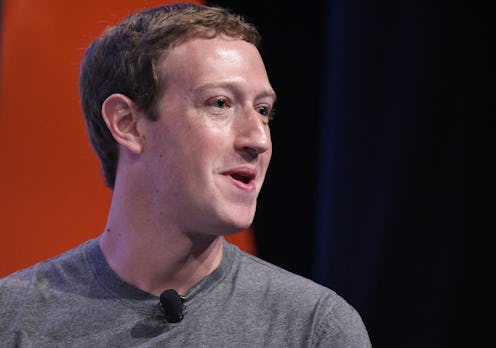News
Why Fake News Is A Plague We Can't Get Rid Of
A big topic in the Democratic postmortem of the 2016 election has been the discussion around fake news, especially stories circulated on social media platforms, like Facebook. It’s a tricky conversation to have, pulling together questions of freedom of the press and freedom of speech, the way in which information gets shared on social media, and who has the authority to adjudicate what’s true and what isn’t. However, the thorniest challenge fake news presents is that people are inclined to believe things that reinforce what they already think, making combating the effects of fake news nearly impossible.
The growing disparity between the news sources of liberals and conservatives is hardly new, but 2016 saw us enter new realms of dissonance. The Wall Street Journal's excellent “Blue Feed, Red Feed” puts this in stark perspective, placing the kinds of stories that liberals and conservatives are likely to see on Facebook side-by-side.
But the pernicious presence of fake news stories, like this one about an FBI agent suspected of leaking info about Clinton’s emails being found dead in, what the Free Patriot called an "apparent murder-suicide," circulated widely on Facebook. Despite being widely refuted and fact checked, searching for the headline still serves up a handful of posts where people take the article seriously.
Clicking through to the article itself reveals a website that at first blush almost looks legit — the Denver Guardian, which claims to be the oldest paper in Denver — but upon closer inspection is something that any teenager worth their blogging salt could throw together in under 30 minutes.
Even as websites like Snopes debunked the article, it was clear that some people chose to believe the emotions of the article even as the facts fell apart. To borrow the phrasing of The Atlantic’s Salena Zito in describing the response to Trump, the articles are taken "seriously, not literally." One Facebook poster wrote, even as she admitted this article was fake, “This has been pointed out as a false story. [but] The deaths I list in my statement are real. It doesn't pay to be close to the Clinton's[sic],” before going on to list several other debunked stories about Clinton.
This is the extreme iteration of a world where our technology allows us to have fully customizable media, especially one rooted in capitalism, where the success or failure of media is predicated upon whether or not it’s profitable. The Adam Smith absolutists who claim that the market economy will eventually reject corrupt products are being put to the test, and the question of how far we stray from trustworthy, consensus news sources is a daunting one.
As companies like Facebook and Google reevaluate how their products interact with these false stories, it’s incumbent upon us to think about how the media landscape has changed, even in just the last four years, and how we approach information moving forward.
